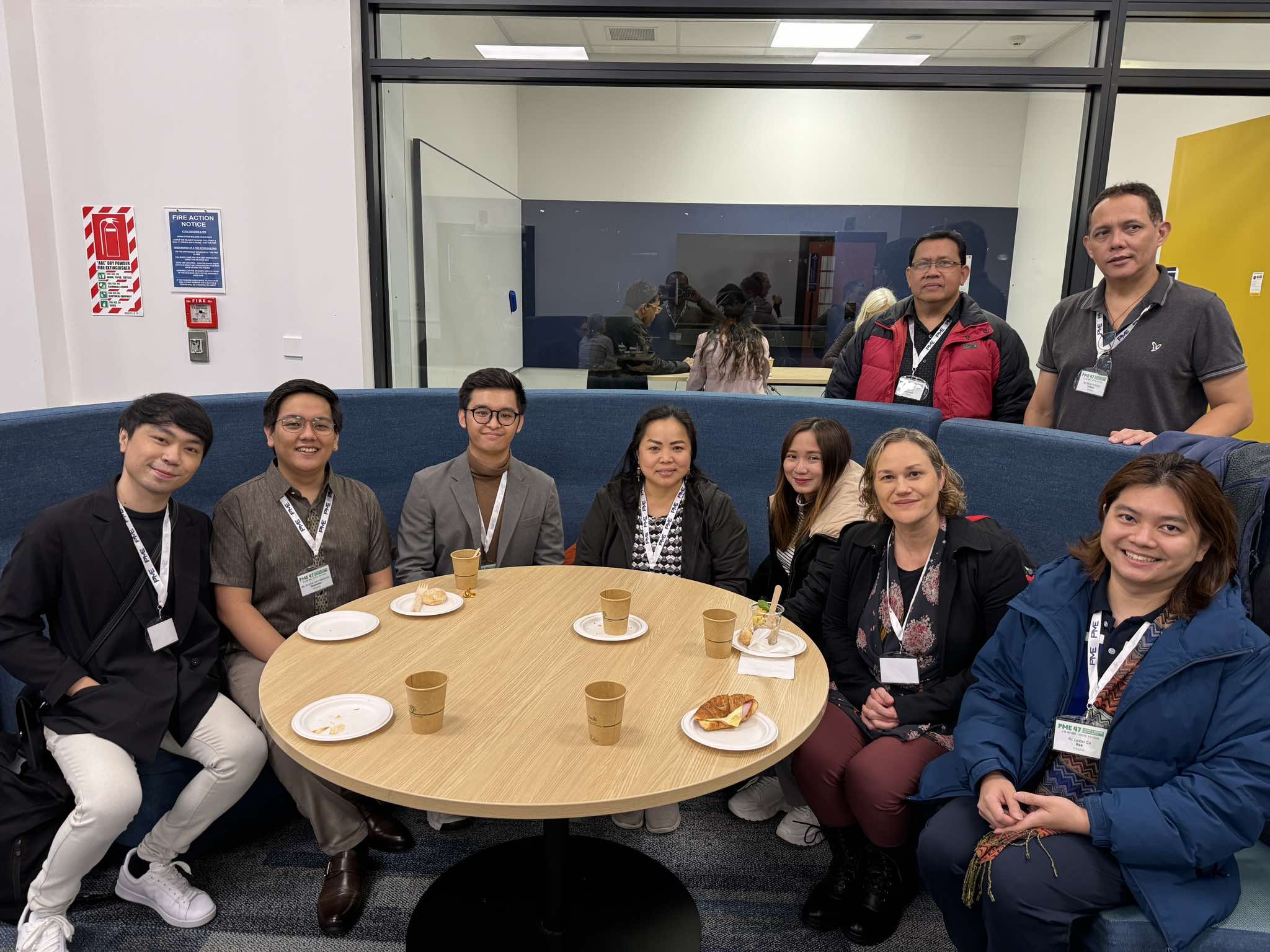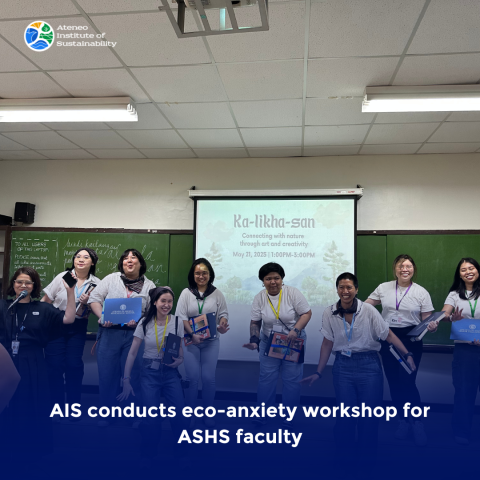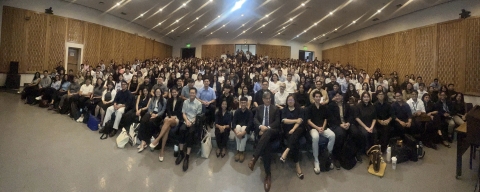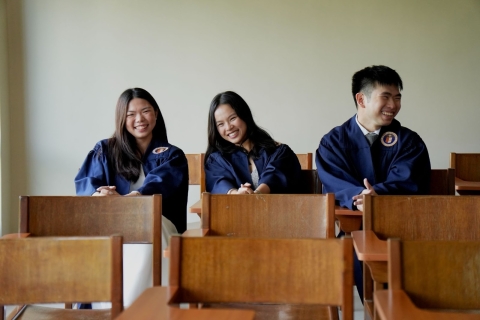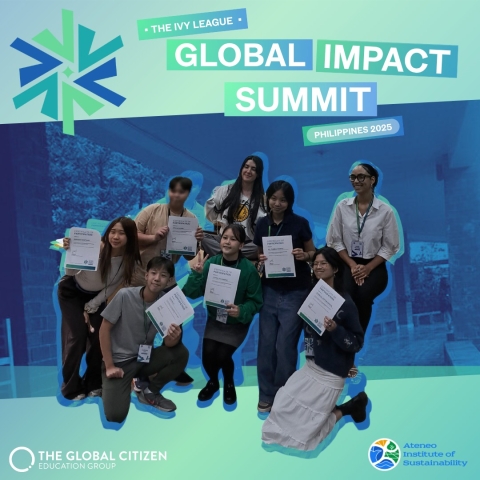MathEd eagles participate in PME-47
14 Aug 2024 | Maria Digi Anna M Avila (PhD Math Ed)
Kick-starting the second half of the year, eight students and faculty of the Ateneo de Manila University Department of Mathematics recently joined the 47th Annual Conference of the International Group for the Psychology of Mathematics Education (PME), held at Massey University Albany Campus, Auckland, New Zealand on 17 - 21 July 2024. The conference was attended by approximately 380 delegates from 41 countries across the world and was jointly organized by Massey University, Auckland University of Technology, and the University of Auckland.
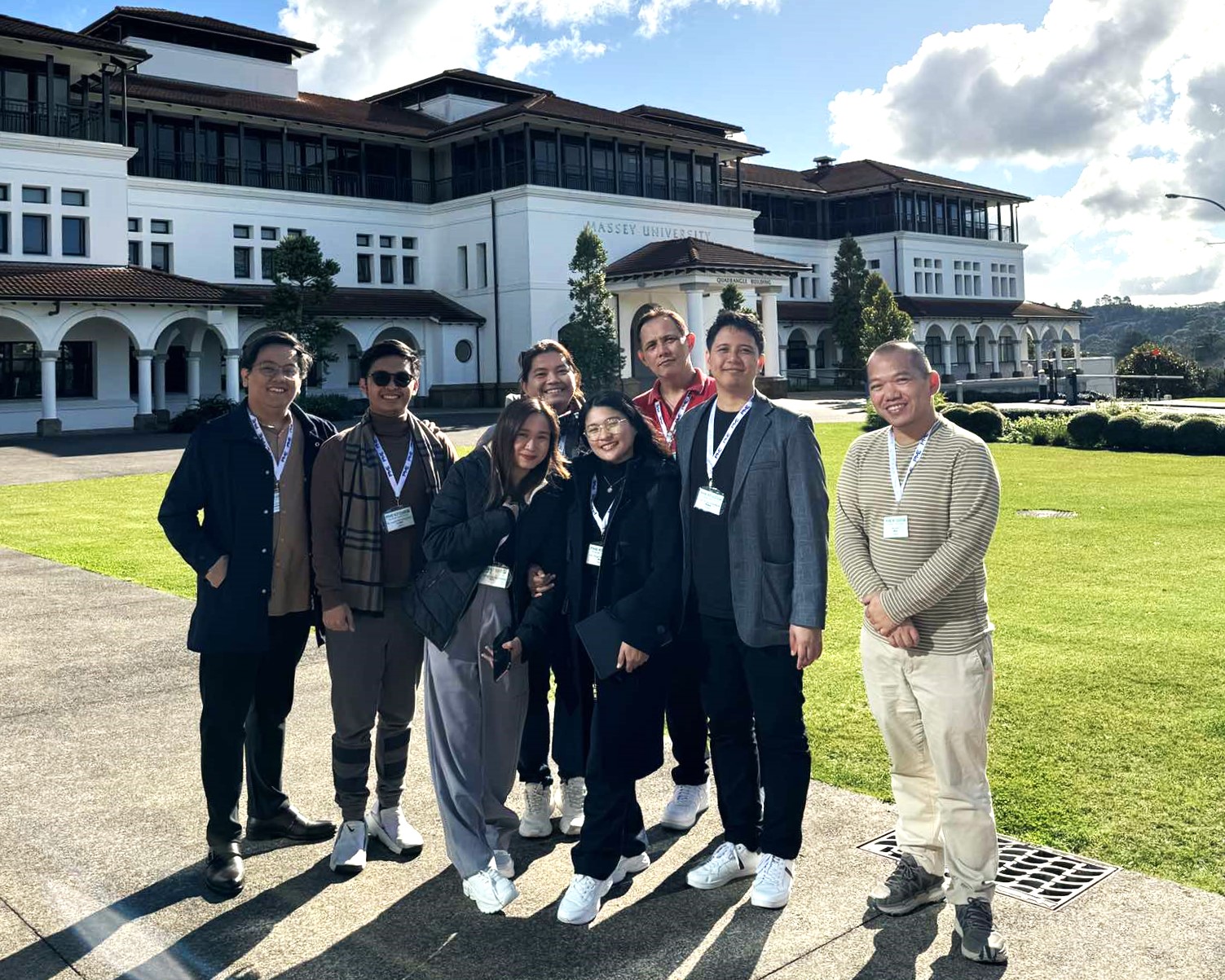
The theme for this year’s PME conference was, “Rethinking Mathematics Education Together,” underscoring the nature of mathematics education research as an evolving field of knowledge in both local and international contexts. To formally open the conference, the conference chair Jodie Hunter gave a warm welcome to the participants by introducing the history and culture of Aotearoa (the traditional Maori name for New Zealand) and by showcasing the talent of the Manurewa East Primary School Kapa Haka Group through a dance presentation. This was followed by an insightful plenary lecture by Professor Mellony Graven from Rhodes University. In her talk, she stressed the value of long-term collaboration and engagement among stakeholders (schools, teachers, learners, etc.) in supporting the development of interventions that aim to strengthen the teaching and learning of mathematics in South Africa, from inception through iterative revisions to potential up-scaling.
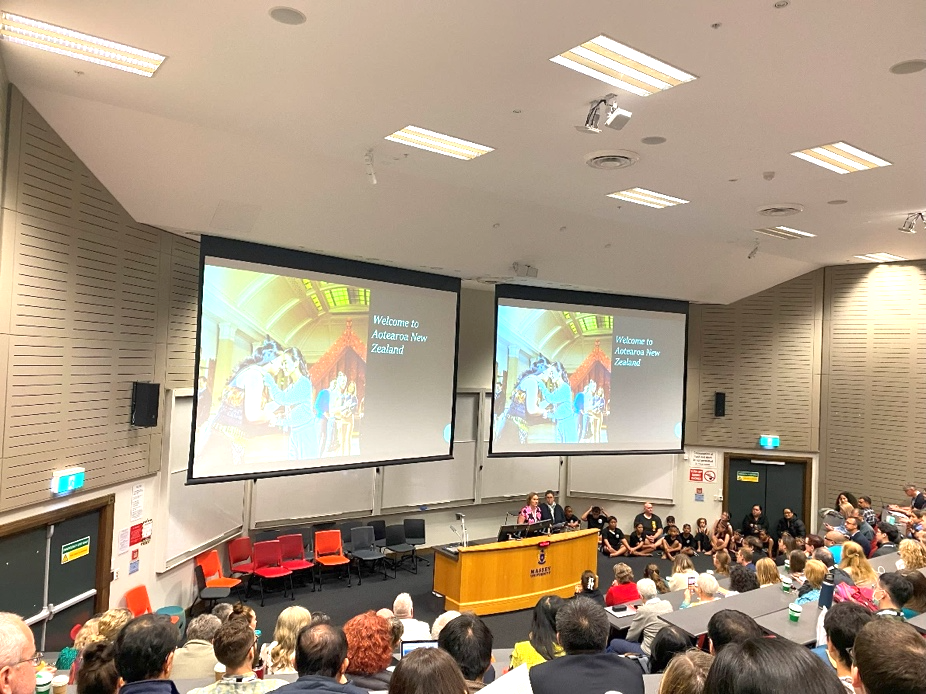
The second day of the conference started with another thought-provoking plenary lecture by Professor Keith Weber from Rutgers University. In his presentation, he argued that proofs should not be perceived as a rigid and static object with well-defined structure and attributes. Rather, students should be allowed to deviate from the standard two-column format of proving and write proofs in a manner that clearly and flexibly shows their thinking. Following the plenary talk were parallel oral presentations and research reports, which allowed mathematics educators and mathematics education researchers from various universities to share valuable findings from their research studies and engage in fruitful discussions with other participants.
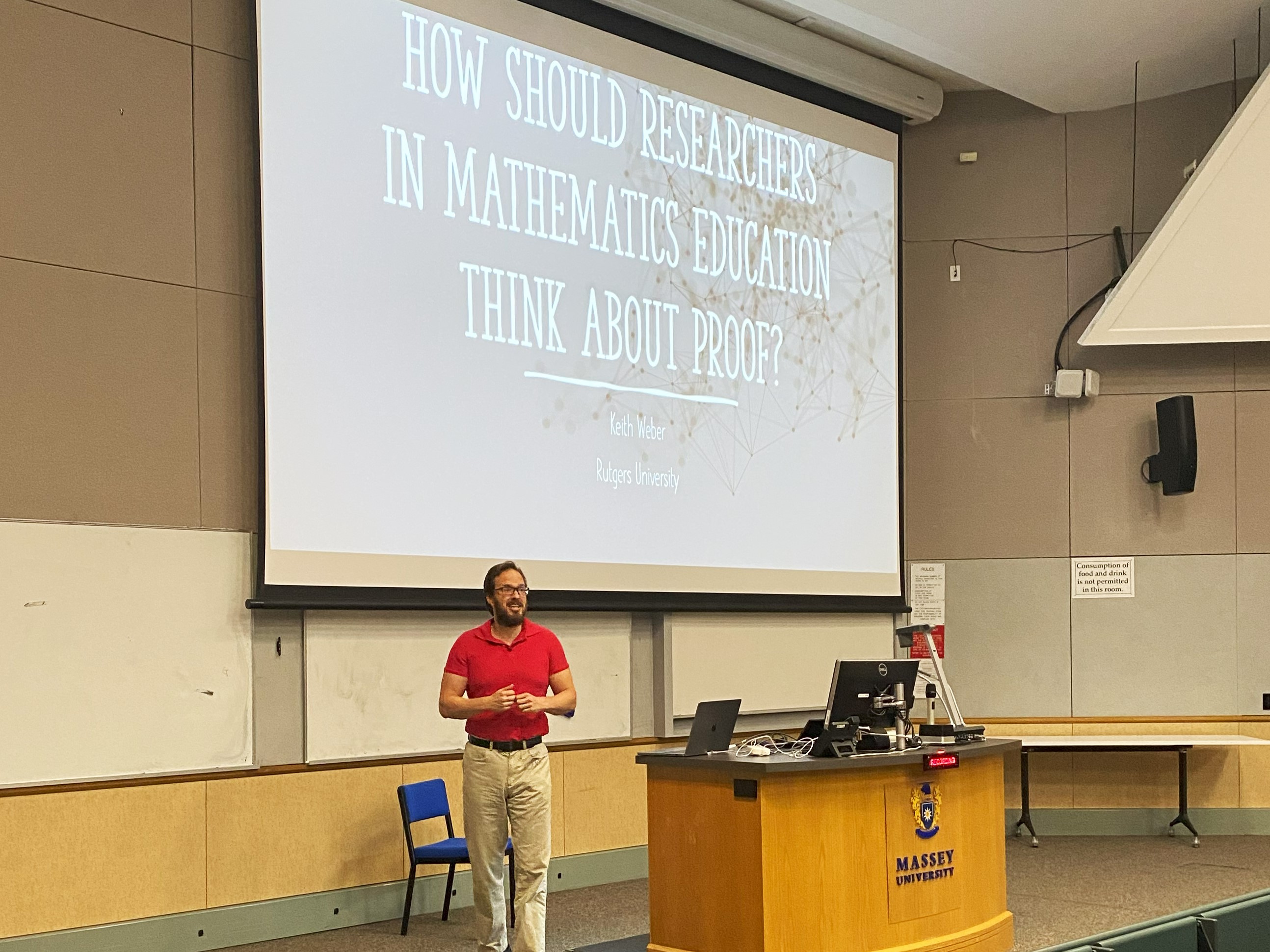
Three delegates from Ateneo de Manila University gave their oral presentations on the second day of the conference. Maria Digi Anna Mance-Avila (PhD MathEd) presented the results of her pilot study about seeking evidence of grounding in an online mathematical discourse. She highlighted the key role of verbal and non-verbal resources in establishing common ground between teachers and students as they engage in mathematical discourse in online environments. This pilot study is part of her dissertation under the guidance of her dissertation adviser, Dr Maria Alva Aberin.
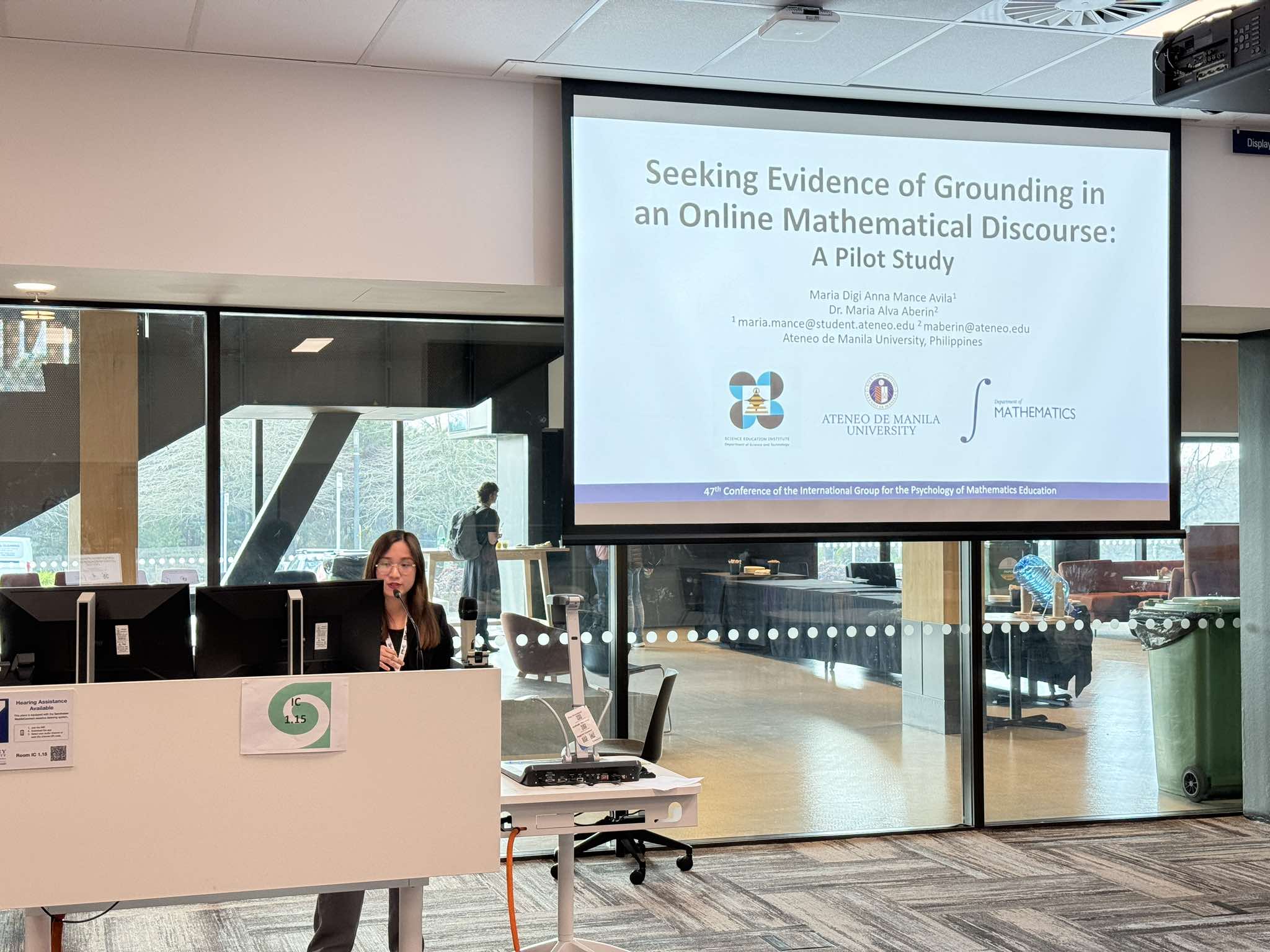
Meanwhile, Angel Mae Ombid (MS MathEd) discussed the results of her study on university students’ various conceptualizations of functions and perspectives on mathematics. She concluded that content perspective could play a role in developing an accurate conceptualization of functions. This study was co-authored by Dr Dennis Lee Jarvis Ybañez and Dr Catherine Vistro-Yu.
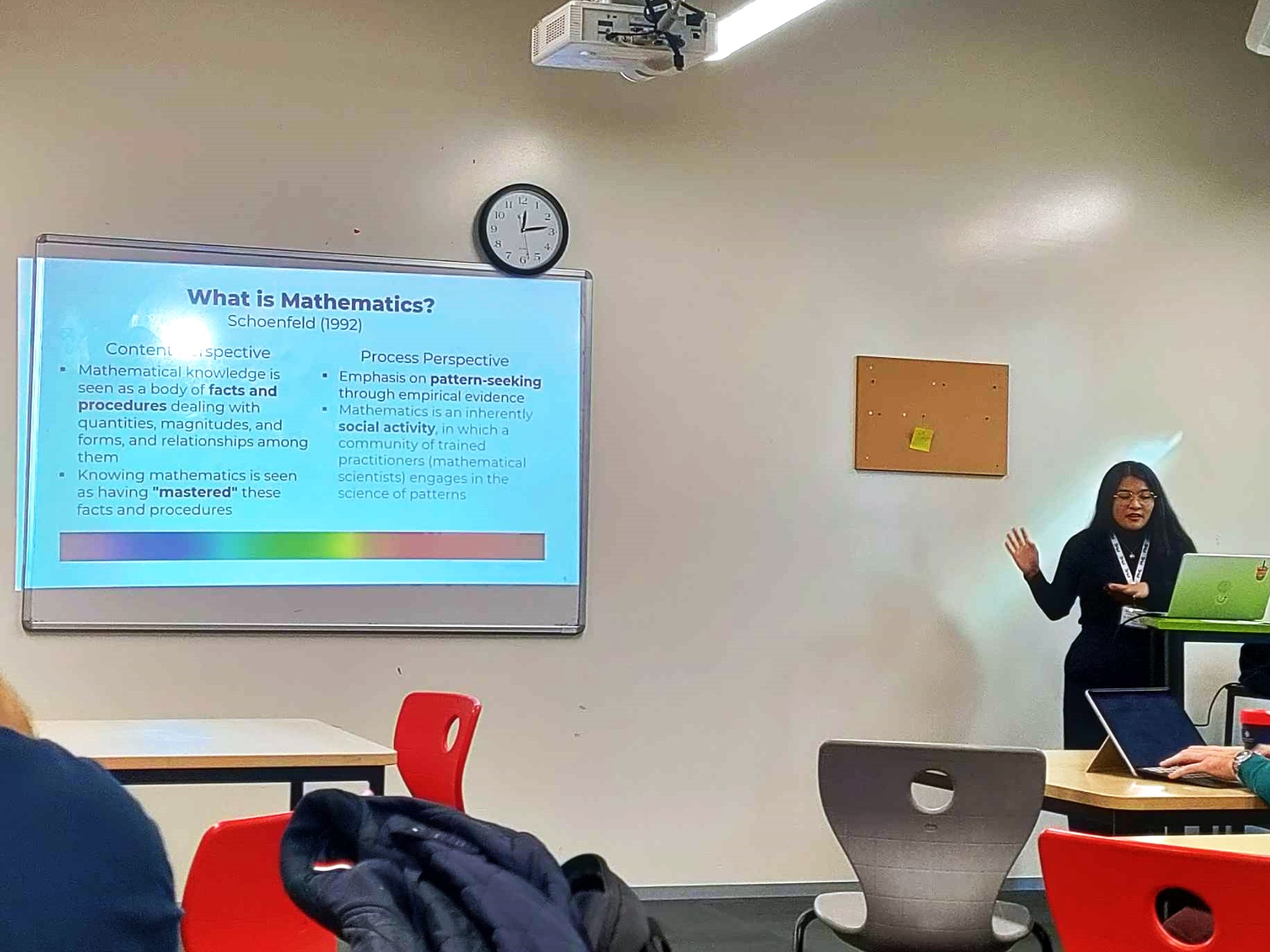
Dr Dennis Lee Jarvis Ybañez represented both Ateneo de Manila University and UP Open University. In his presentation, he discussed senior high school students’ perspectives on using teks as a visualization object as they conceptualize a sample space. He concluded that the perspectives that emerged allowed students to meaningfully construct an initial concept of a sample space. This study was co-authored by Dr Catherine Vistro-Yu.
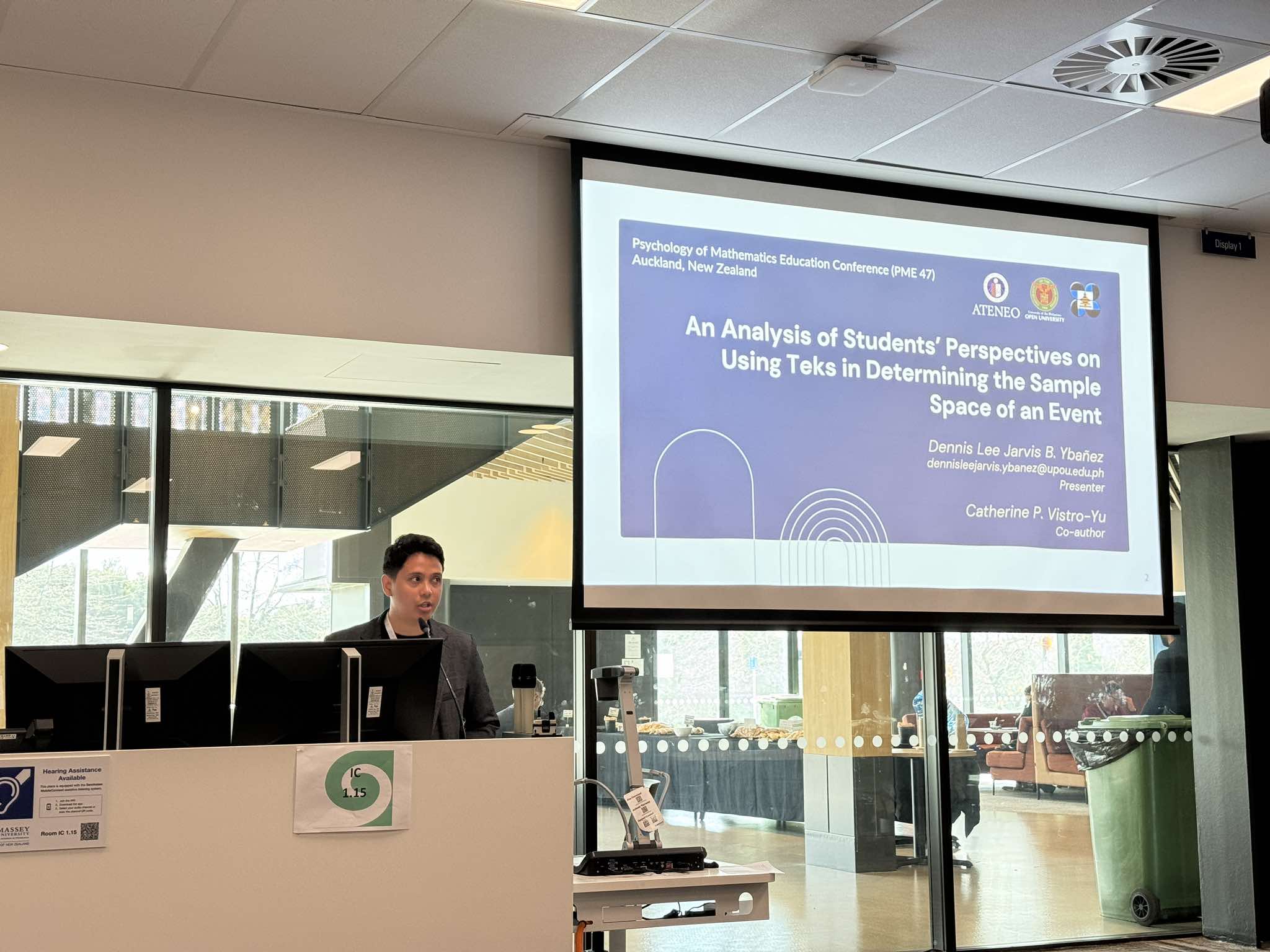
Two more delegates from Ateneo de Manila University had their oral presentation on the third day of the conference. Joseph Ma Steven Cabalo (MS MathEd) discussed how senior high school mathematics teachers perceive and integrate Generative Artificial Intelligence (GenAI) technologies into their teaching practices. He then emphasized the need for targeted support for teachers in order to maximize the potential of GenAI tools in teaching mathematics.
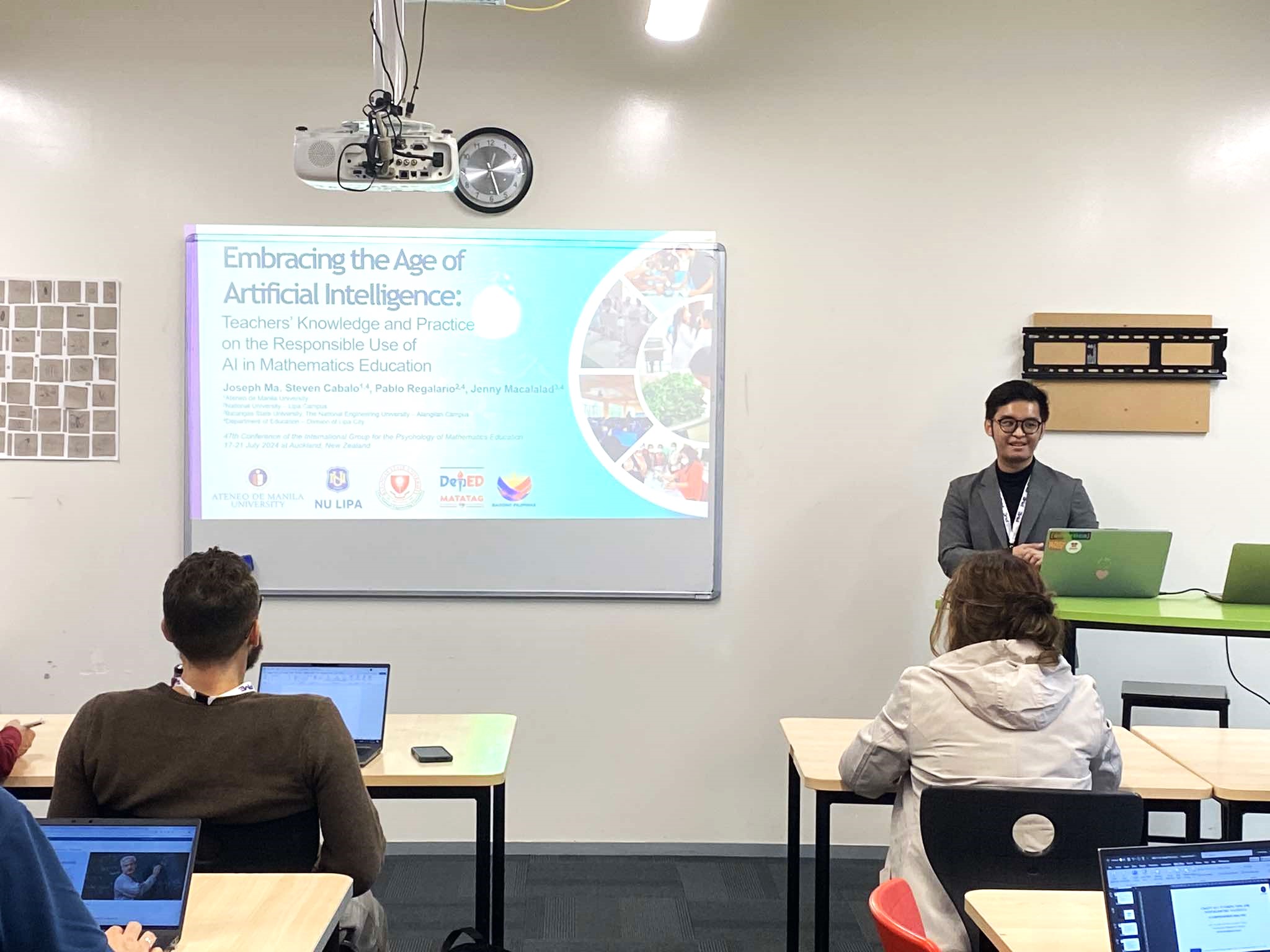
Meanwhile, Dr Jude Buot, a mathematician, shared his analysis of how teacher’s beliefs develop over time as influenced by different factors, including varying professional roles. The analysis revealed that having a reflective disposition towards teaching and learning contributes to shifts in these beliefs as teachers take on varied roles. This study was co-authored by fellow ADMU Mathematics faculty, Dr Lester Hao.
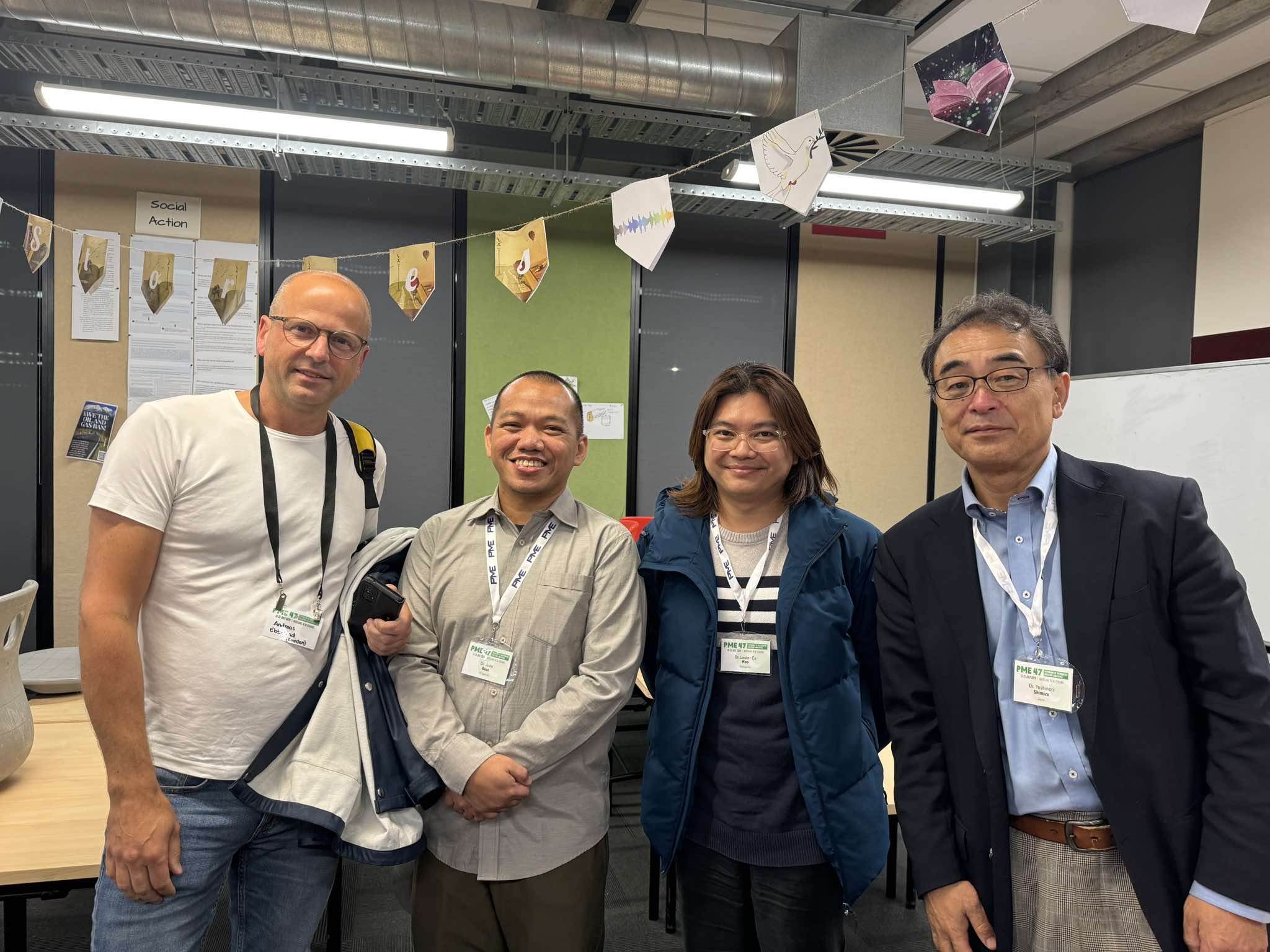
Aside from the parallel oral presentations and research reports, poster presentations were also held on the third day, showcasing diverse research studies in mathematics education by delegates from across the world.
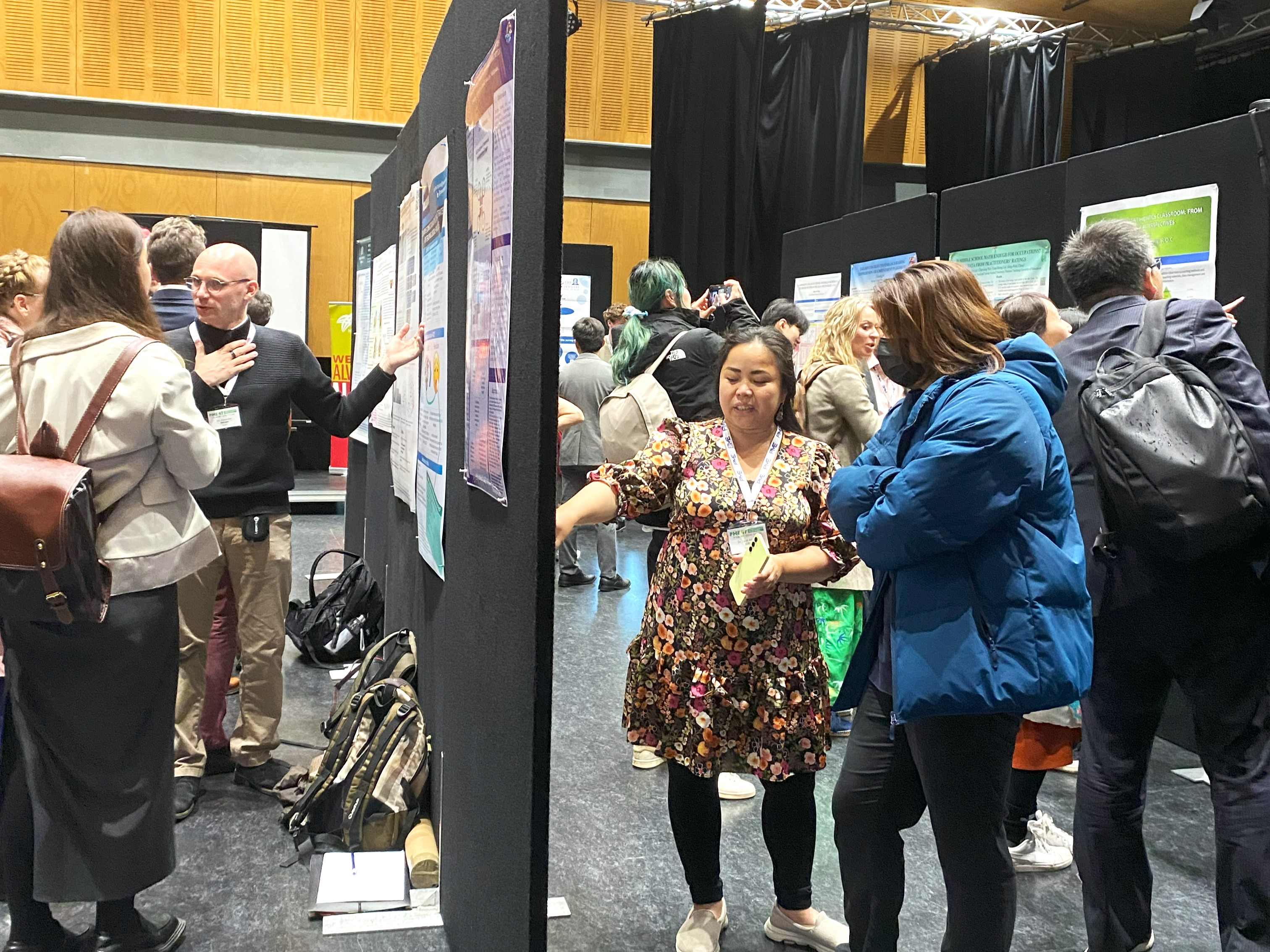
The fourth day of the conference started with a plenary panel discussion about the diverse body of knowledge of mathematics. The panel members consisted of Nuria Planas from Universitat Autonoma de Barcelona, Tony Trinick from University of Auckland, Stefan Ufer from University of Munich, and Vilma Mesa from University of Michigan. The discussion revolved around the question, “Can we draw on the diverse body of knowledge of mathematics and develop a mathematics curriculum?” The panel members had varying opinions about the topic, with three advocating for the inclusion of both canonical and non-canonical mathematics and one arguing against the inclusion of canonical mathematics. In the end, they all agreed that it is important to respect communities and their origins in developing school mathematics curricula to provide broader access to learners of mathematics.
Rhett Anthony Latonio (PhD MathEd) was the only Atenean presenter on the fourth day of the conference. He discussed the development of a four-indicator mathematical creativity test for fifth grade students. The test is part of a larger study aimed at identifying components that promote mathematical creativity in classroom settings. Rhett is guided by his dissertation adviser, Dr. Catherine Vistro-Yu.
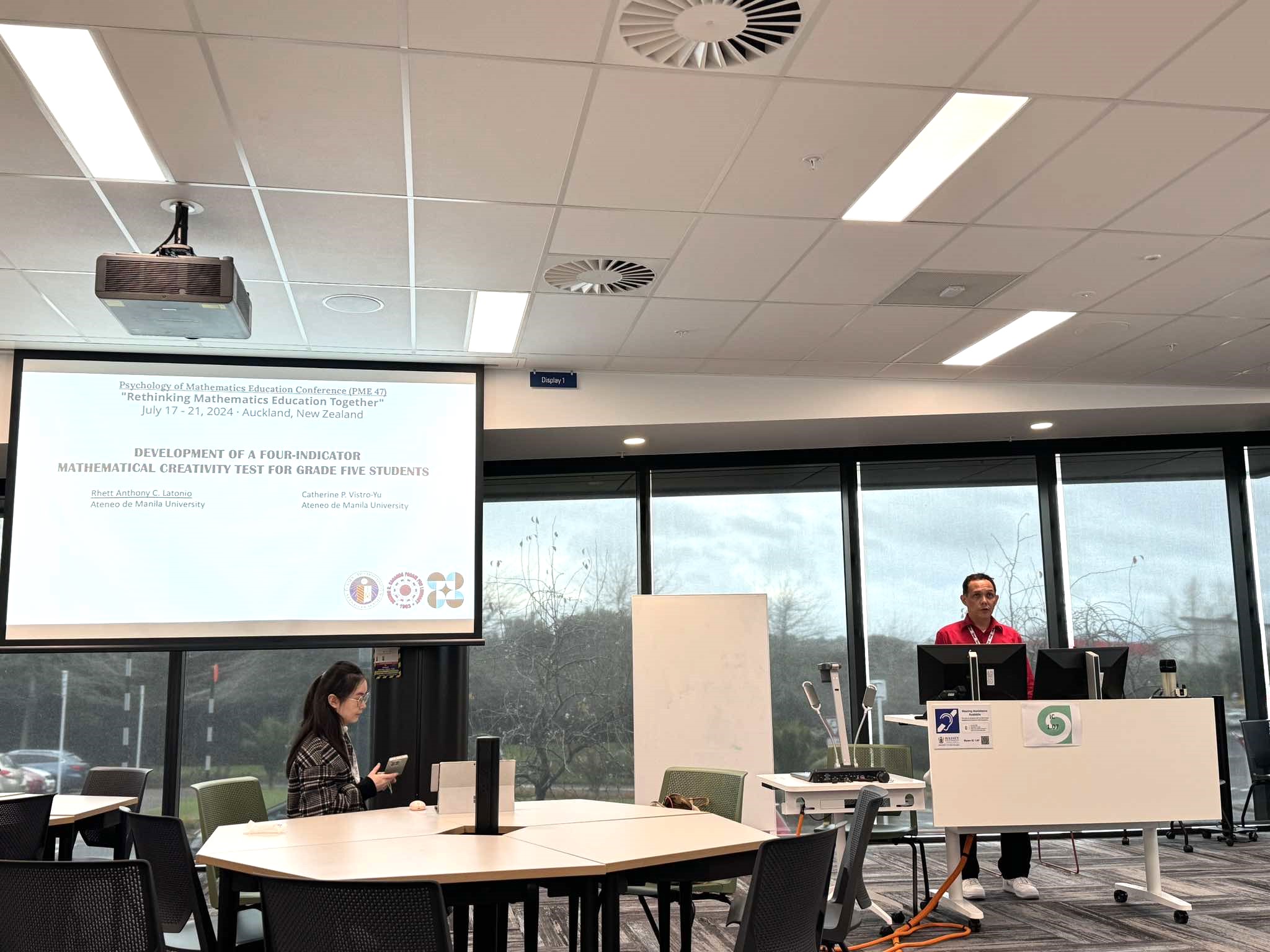
Following the parallel oral presentations and research reports was the Annual General Meeting (AGM) of PME. During the AGM, an election for the next PME president and trustees was conducted. Publication report as a new session format was also proposed to be included in the succeeding PME conferences. After the casting of votes, Oh Nam Kwon from Seoul National University was announced as the new PME president.
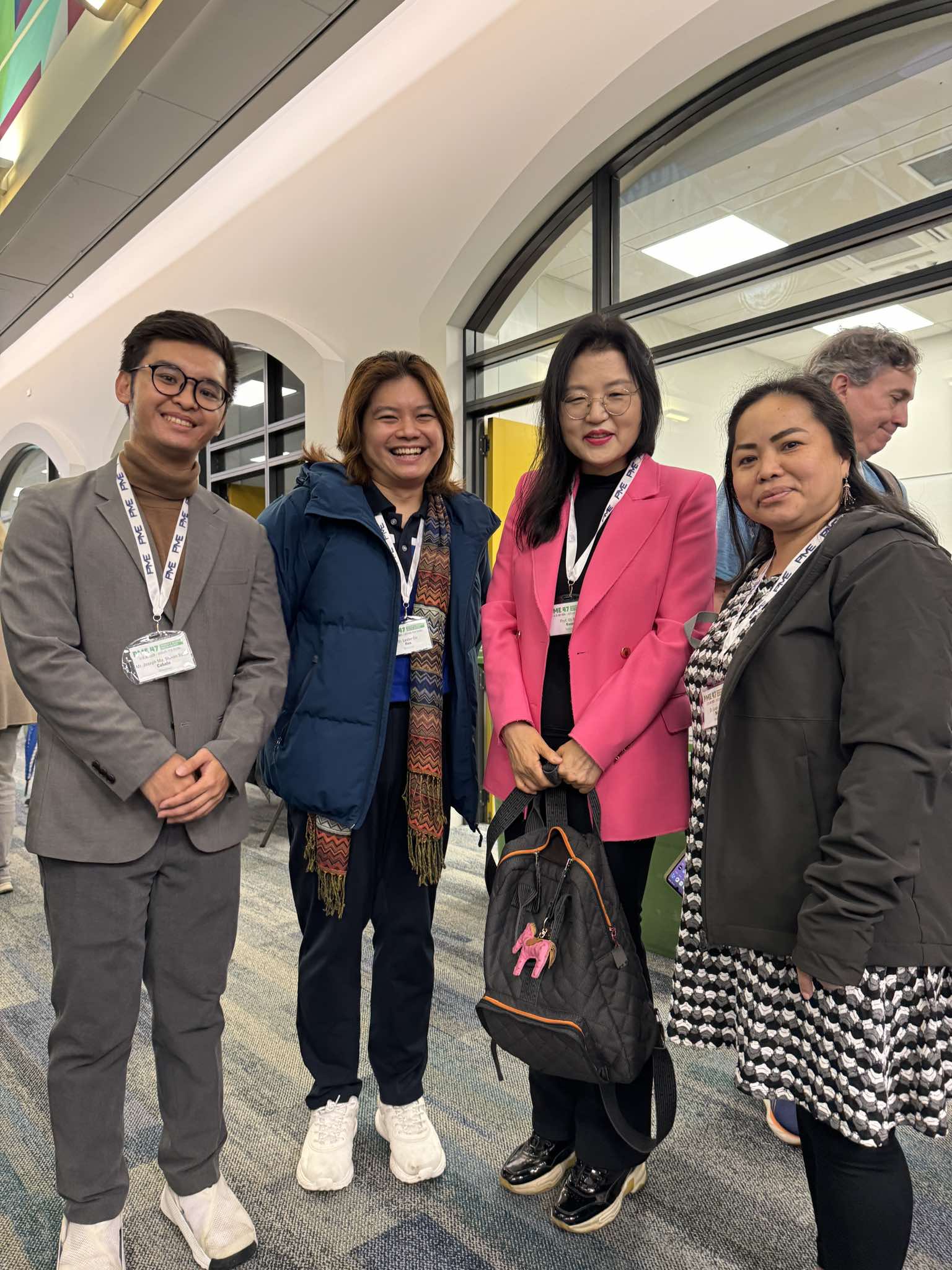
The fourth day of the conference ended with a dinner night at the Spencer Hotel in Takapuna. The event started with a cultural dance presentation by the Drums of the Pacific, followed by a delectable dinner buffet. The participants definitely enjoyed the night as they unleashed their moves on the dance floor. They were so on fire that the building had to be evacuated due to the alarms of the smoke detectors setting off. Thankfully, it was a false alarm, and everyone got home safely.
The last two Math Ed Eagles had their oral presentations on the last day of the conference. In his talk, Dr Lester Hao discussed the potential connection between cognitive restructuring and visualization objects as senior high school students described the concept of a sample space in terms of outcome. This study was co-authored by Dr Dennis Lee Jarvis Ybañez.
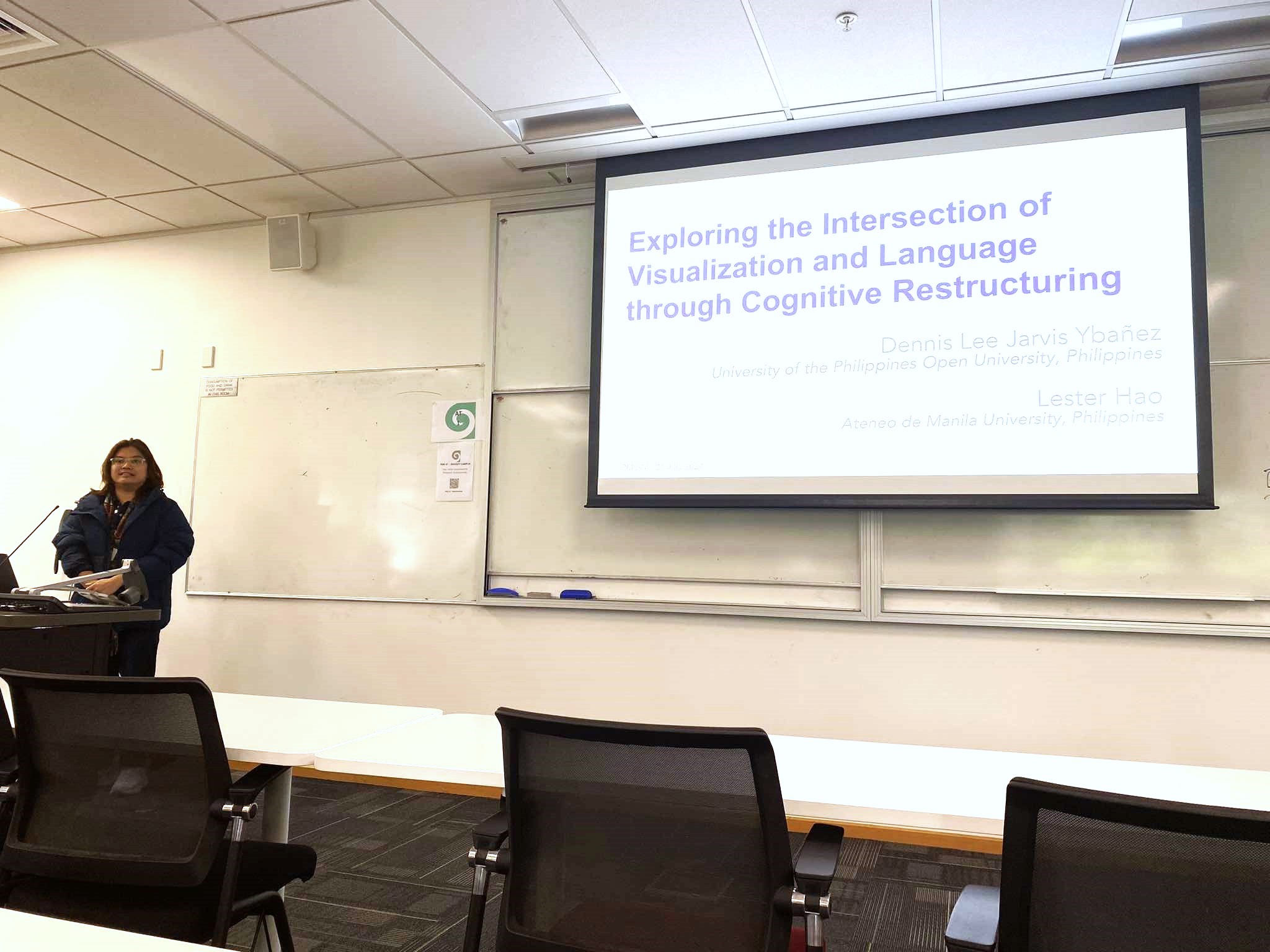
Concluding the parallel oral presentations was Patrick John Fernandez (PhD MathEd), who presented the design of his three-phase cyclical flipped classroom model and its effects on productive disposition. This model could serve as a framework for implementing flipped mathematics classrooms in the future. Patrick is guided by his dissertation adviser, Dr Angela Fatima Guzon.
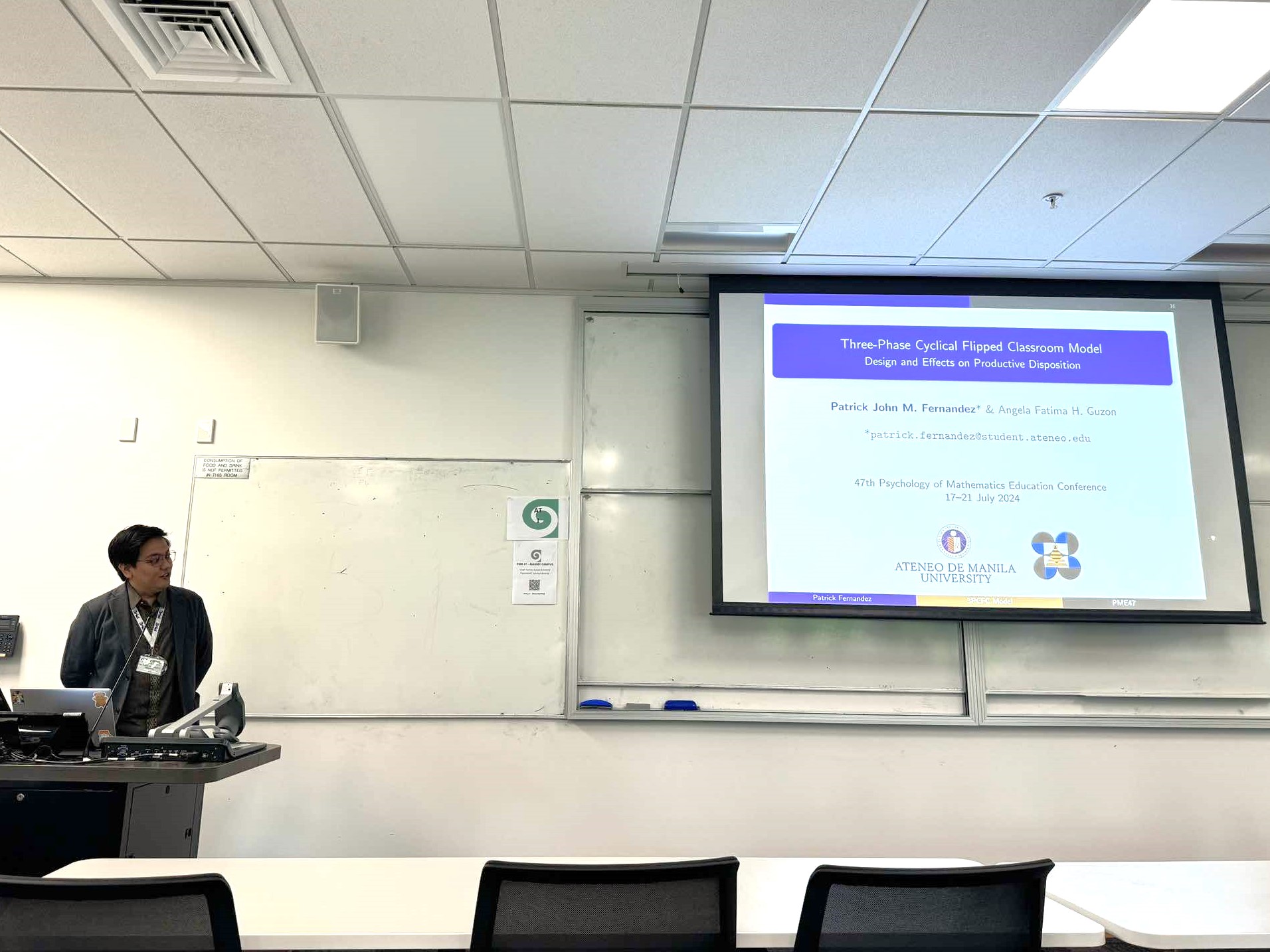
True to its theme, “Rethinking Mathematics Education Together,” the 47th PME Conference provided the participants with the opportunity to build new friendships with researchers from various communities across the world and gain new insights about the changing landscapes of mathematics education and mathematics education research. The Ateneo delegates also concurred that everyone at the PME conference was incredibly warm and welcoming. The warmth of these people more than made up for Auckland's cold weather.
After the conference, the Ateneo delegates had a well-deserved celebration in the city centre of Auckland. The weather was erratic, shifting between sunny weather and rainy weather in just a matter of seconds, but that did not stop the Eagles from exploring the beauty of the city. They tried out various cuisines, visited famous tourist spots, and reconnected with family and friends who are living in Auckland. It was a very memorable trip for everyone.
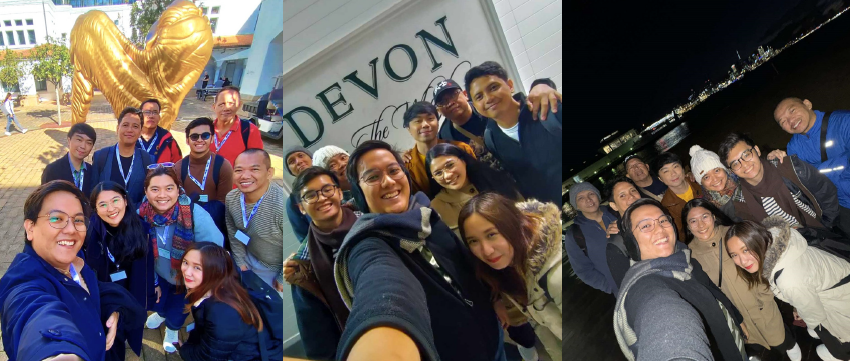
Although the 47th PME Conference has already ended, the Math Ed Eagles are hopeful that it will not be the last time that they will join a PME conference. They also hope to participate in more conferences, both locally and internationally, in order to contribute to the growing body of knowledge of mathematics education and mathematics education research in the country.
As the famous Maori proverb says, “Nau te rourou, naku te rourou, ka ora te manuhiri” (meaning, “With your food basket and with my food basket, the people will thrive”), Conference Chair Jodie Hunter reminded everyone that we can all work together to create something bigger than ourselves.
